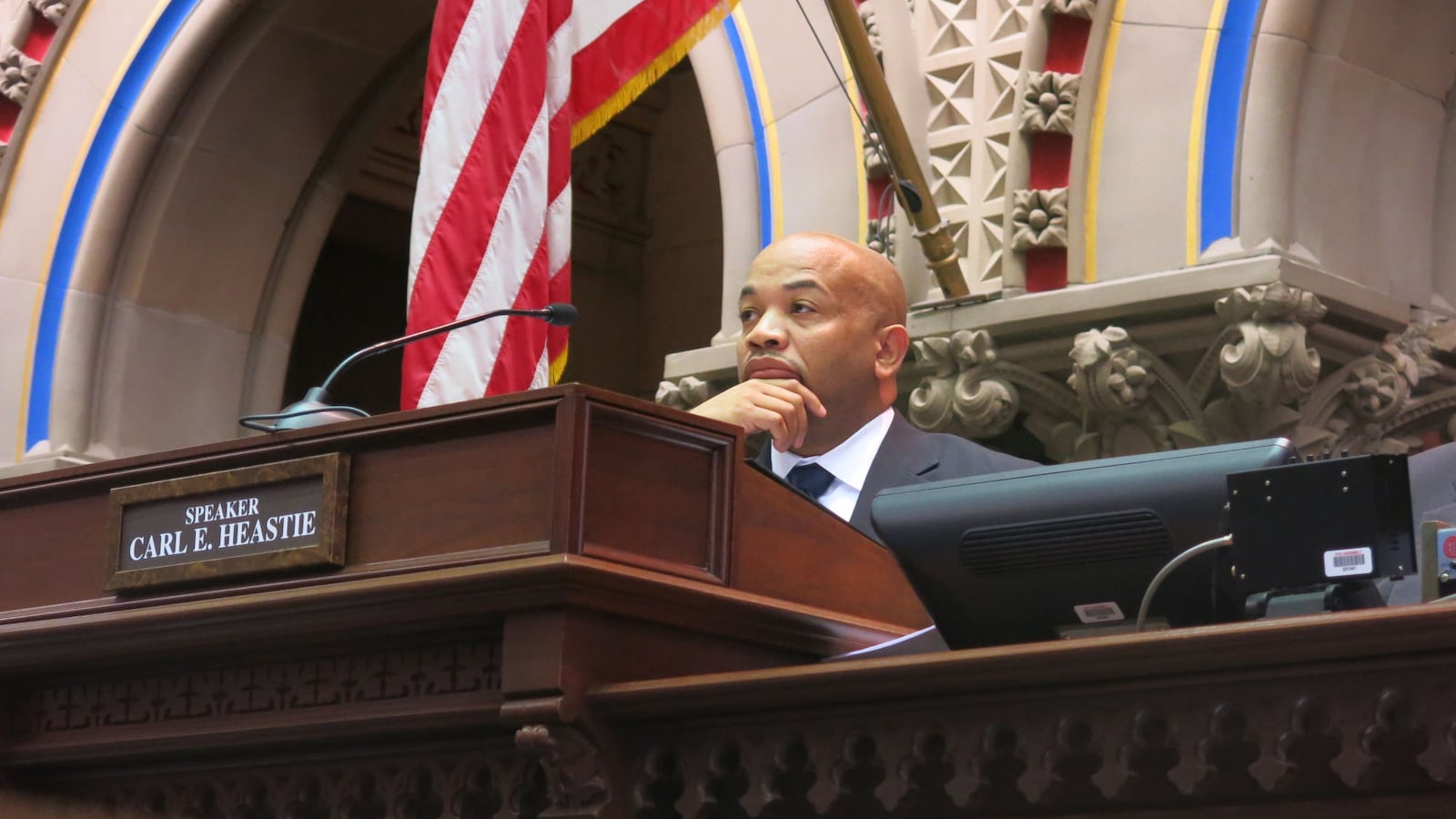The final day of New York state’s scheduled legislative session has come and gone — but there’s no final deal on mayoral control of city schools.
Lawmakers wrapped up the legislative session late Wednesday, though they could return to address mayoral control of New York City schools at a later date. The provision expires at the end of June, but blowing the session’s deadline takes state officials one step closer to letting the mayor’s governance of the nation’s largest school system lapse.
“This evening, the state legislature will adjourn its 2017 legislative session,” Senate Majority Leader John Flanagan said in a statement. “We would have preferred to have tied everything up with a nice neat bow and returned to our districts with nothing at all left on our plate, but under the circumstances, that just wasn’t possible.”
He also suggested that he supports mayoral control of city schools, as long as it comes with help for charter schools. “I support the renewal of mayoral control, as do my Senate Republican colleagues,” Flanagan said.
Meanwhile, Assembly Speaker Carl Heastie admitted this outcome wasn’t perfect. “Sometimes in politics you don’t always get what you want,” he said on Wednesday night. He also reportedly said he had “no intention of coming back.”
For the past two years, Mayor Bill de Blasio has secured only one-year extensions of the policy, thanks largely to his fraught relationships with Senate Republicans and Governor Andrew Cuomo. (Former Mayor Michael Bloomberg received a seven-, then a six-year extension.)
Without mayoral control, New York City schools would revert back to a system with 32 community school boards — something even Mayor Bill de Blasio’s opponents do not support. Yet lawmakers are stuck in a deadlock over whether the extension should come with concessions, such as eliminating New York City’s charter school cap.
Mayoral control has lapsed before, providing a blueprint for what it might look like if it happened again. In July 2009, under Bloomberg, its expiration caused a brief reconstitution of the city’s Board of Education. But it took only a month before lawmakers returned to Albany and passed a multi-year extension.
The relatively small disruption caused by the lapse in 2009 leads some observers to conclude that letting the law expire will bring little harm to schools, teachers or students. That’s a far cry from the “chaos, gridlock, and corruption” predicted by New York City Schools Chancellor Carmen Fariña.
But the first scenario assumes the law will be reinstated as quickly as it was in 2009, said Tim Kremer, executive director of the New York State School Boards Association. Every year is different, and this one is marked by “deep-seated” policy and personality conflicts between the mayor and Albany lawmakers, Kremer said. Also, notably, the Senate was in the midst of a leadership crisis when lawmakers failed to renew mayoral control in 2009.
“I think people are taking false comfort in saying ‘Listen, we blew through the deadline last time and nothing happened; we can do that again,’” Kremer said. “They really are playing a little bit with fire.”
So what exactly would it look like if mayoral control lapsed? Chalkbeat spelled that out in a step-by-step guide back in 2009, informed in part by a memo sent by Bloomberg’s staff outlining how they saw the transition at the time.
First, city officials would have to reconvene a citywide Board of Education with five appointments made by borough presidents and two by the mayor. That board would have the power to select a chancellor. The city followed that script in 2009, which resulted in a unanimous vote to retain Joel Klein as chancellor.
Some observers, like David Bloomfield, a professor at Brooklyn College and the CUNY Graduate Center, feel confident the same would happen this time around.
“I fully expect that to go without any problem and that they will proceed to appoint Carmen [Fariña],” Bloomfield said.
To test his theory, Chalkbeat reached out to all five borough presidents earlier on Wednesday. Officials from three offices responded. The Manhattan Borough President Gale Brewer’s director of communications said she is committed to keeping Carmen Fariña as chancellor. Officials from Borough President Eric Adams’s office said he was focused on renewing mayoral control. Officials from Queens Borough President Melinda Katz’s office did not commit to keeping the chancellor.
“The only commitment Borough President Katz will make at this time is to appoint a representative to the reconstituted Board of Education,” officials wrote in an email.
If mayoral control lapsed for more than a month, New York City would head into uncharted territory. At some point, the city is required to revive the community school boards, but those elections wouldn’t be held until spring 2018.
That leaves months of limbo. In 2009, there was some discussion of whether the chancellor could appoint trustees to community school boards in the interim. But a spokeswoman for Mayor Bill de Blasio said he interprets the law to mean there would be no community school boards until the following May. That means no community input, no ability to appoint a permanent superintendent, and likely no rezoning votes, she said.
Even though there’s only a slim chance this fight will last until May, de Blasio said he doesn’t want to take any chances.
“When you open up Pandora’s box,” the mayor said at a press conference Wednesday, “you don’t know what happens next.”

